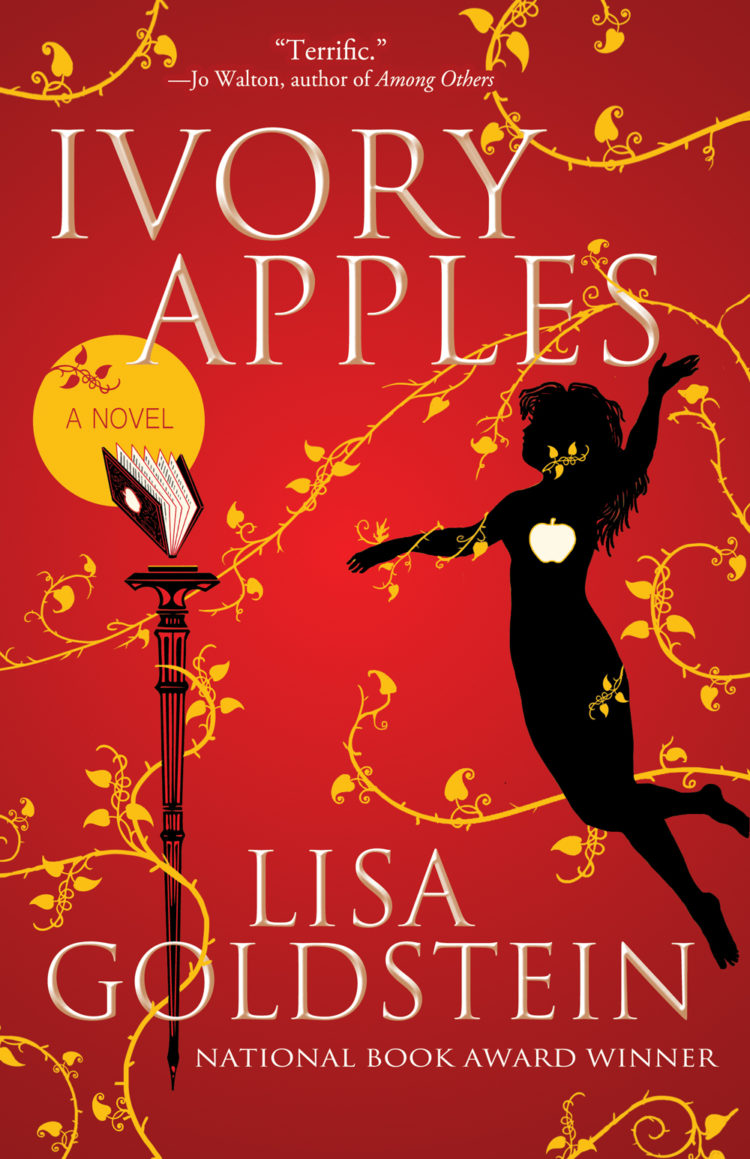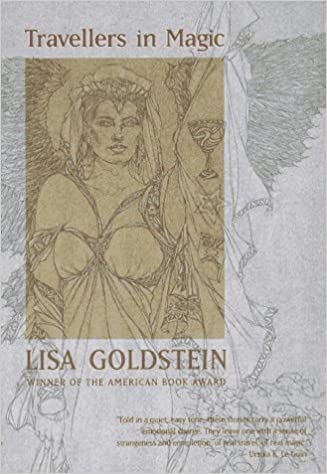Never once setting one foot wrong, Lisa Goldstein’s IVORY APPLES proves to be an instant classic

Paul Di Filippo in ASIMOV’S SCIENCE FICTION (July/August 2020) is impressed by Lisa Goldstein’s IVORY APPLES.
I wonder if it’s mere coincidence that Jonathan Carroll wrote a magnificently touching and surreal book titled White Apples, and now Lisa Goldstein gifts us with a volume of equal heft and magnitude, comparable ambition and impact, called IVORY APPLES (Tachyon Publications, trade paper, $15.95, 288 pages, ISBN 978-1616962982). This book, certainly among her top five, is rather a Carrollian outing for her, but redolent of her distinctive lilting voice and humanistic approach. Deliberate homage or not, Goldstein’s new novel is a work of high accomplishment along the same lines as White Apples, an “urban fantasy” novel in the classic, not commodified sense that might call to mind the work of Crowley and Wolfe, as well as that of Mr. Carroll.
[…]
Goldstein packs a host of vital and important themes into this book while never skimping on character development, fantastical oddness and beauty, mimetic clarity, nor gripping events. The book has quiet moments and frantic ones, comic and tearful ones, quotidian and cosmic ones. Goldstein never once sets her foot wrong.
IVORY APPLES might be thought of as a hybrid of Gilliam’s The Fisher King, L’Engle’s A Wrinkle in Time, and Mirrlees’ Lud-in-the-Mist, or some mashup of George MacDonald, Lord Dunsany, and Tim Powers. It should win all sorts of awards and achieve instant classic status. Unless, of course, the world proves rather too full of Ms. Burdens and woefully short of Ivy Quinns.

On NOVEL GAZING REDUX, Marissa Lingen admires Lisa Goldstein.
Critical discourse about the speculative genres often focuses on alienation. And Lisa Goldstein does a lot with that theme–but she often does it in the slightly gentler realm of visitor/tourist. The bewildered traveler–either metaphorically or literally–estranged from the world around them but interested–is a common theme through Goldstein’s books. With this angle comes the willingness to experience new things but also the struggle to free oneself from previous perspective.
The first time I read Tourists, IVORY APPLES, and A Mask for the General–my three favorite of Goldstein’s novels–this common thread didn’t strike me as strongly as it does on this time around. Maybe it’s because I’m staying put myself. Maybe it’s just having a little more perspective. It’s not like she didn’t hand us clues to what she was doing: her collection is called Travelers in Magic, for heaven’s sake. But right now, in the middle of our pandemic shutdown, I’m particularly appreciating the strangely familiar feel of this kind of long strange trip. And I’m particularly glad that Lisa Goldstein is still around imagining new places to take us. We need them now.


